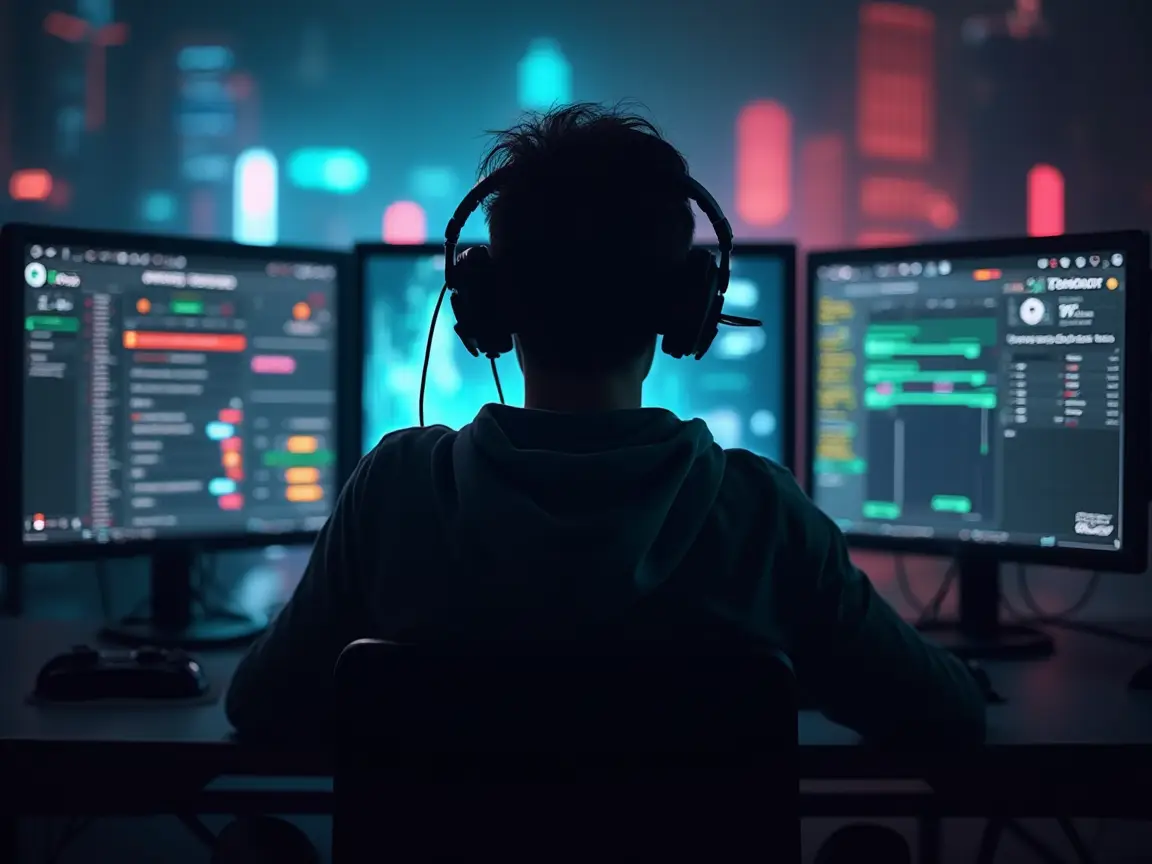In the rapidly evolving landscape of gaming, the integration of AI and blockchain technology is setting the stage for a revolutionary shift in social gaming experiences. As AI continues to innovate gameplay with intelligent NPCs and personalized experiences, blockchain emerges as the essential backbone to enhance creativity and secure game ownership. Centralized systems, which have historically restricted player autonomy and creative expression, are giving way to decentralized gaming models that foster unprecedented freedom and innovation. This exciting intersection of AI in gaming and blockchain technology is not just reshaping how games are played, but also how they are owned and experienced. Join us as we explore the transformative potential of these technologies and their ability to redefine next-gen gaming for developers and enthusiasts alike.
Transforming Social Gaming with AI
The integration of AI in gaming is revolutionizing the way we play, interact, and experience virtual worlds. This section explores how AI is reshaping the gaming landscape, fostering creativity, and enhancing social gaming experiences.
AI in Gaming Revolution
Artificial Intelligence is fundamentally changing the gaming industry, introducing unprecedented levels of interactivity and immersion. AI algorithms are now capable of creating dynamic, responsive game environments that adapt to player behavior in real-time.
One of the most significant impacts of AI in gaming is the evolution of non-player characters (NPCs). These AI-driven entities now exhibit more realistic behaviors, engaging in complex dialogues and making decisions based on the player’s actions. This advancement creates a more immersive and believable game world.
Moreover, AI is transforming game design itself. Procedural generation, powered by AI algorithms, allows for the creation of vast, unique game worlds. This technology enables developers to produce diverse content efficiently, ensuring that each player’s experience is distinct and engaging.
AI-Powered Games and Creativity
AI is not just enhancing existing game mechanics; it’s opening up new avenues for creativity in game development. Machine learning algorithms are now being used to generate original game content, from character designs to entire storylines.
This AI-driven creativity extends to player experiences as well. Adaptive difficulty systems, powered by AI, can tailor the game’s challenge level to each player’s skill, ensuring a consistently engaging experience. This personalization goes beyond difficulty, with AI systems capable of adjusting narrative elements and game world details based on player preferences.
Furthermore, AI is enabling new forms of player-game interaction. Natural language processing allows for more intuitive voice commands, while computer vision technologies are enhancing augmented reality gaming experiences.
Enhancing Social Gaming Experiences
In the realm of social gaming, AI is fostering more meaningful and dynamic player interactions. AI-powered matchmaking systems can pair players based on skill level, play style, and social preferences, leading to more enjoyable multiplayer experiences.
AI chatbots and virtual assistants are enhancing in-game communication, providing real-time translation services and moderating discussions to maintain a positive gaming environment. These tools are crucial in creating inclusive, global gaming communities.
Additionally, AI is being used to analyze player behavior and social interactions within games. This data helps developers understand player preferences and social dynamics, allowing them to refine and improve social features in their games.
Blockchain: The Key to Next-Gen Gaming
While AI is revolutionizing gameplay, blockchain technology is addressing crucial aspects of ownership, value, and decentralization in gaming. This section explores how blockchain is becoming an essential component of next-gen gaming experiences.
Blockchain and Gaming Synergy
Blockchain technology is introducing unprecedented levels of transparency and security to the gaming industry. By leveraging decentralized ledgers, blockchain ensures that in-game transactions and asset ownership are verifiable and immutable.
This technology is particularly transformative for in-game economies. Blockchain-based cryptocurrencies and tokens allow for seamless, cross-game transactions, enabling players to truly own and trade their digital assets. This creates new economic opportunities within gaming ecosystems.
Moreover, blockchain’s smart contract functionality is revolutionizing how games are developed and monetized. These self-executing contracts can automate royalty distributions, ensuring fair compensation for game creators and contributors.
Game Ownership Through Blockchain
One of the most significant impacts of blockchain in gaming is the concept of true digital ownership. Non-fungible tokens (NFTs) are at the forefront of this revolution, allowing players to own unique in-game assets that can be verifiably scarce and valuable.
This ownership extends beyond individual games. Blockchain enables players to take their assets and achievements across different games and platforms, creating a persistent digital identity. This interoperability is fostering a new era of connected gaming experiences.
Furthermore, blockchain-based ownership models are empowering players to become stakeholders in the games they love. Through decentralized autonomous organizations (DAOs), players can have a say in game development decisions and even share in the game’s success.
Decentralized Gaming Innovations
Decentralization, powered by blockchain, is reshaping the structure of the gaming industry. By removing central authorities, blockchain enables peer-to-peer gaming experiences that are more resilient to censorship and server outages.
This decentralized model is also fostering innovation in game development. Blockchain-based platforms allow for community-driven game creation, where developers can collaborate openly and be fairly compensated for their contributions.
Additionally, decentralized finance (DeFi) concepts are being applied to gaming, creating new economic models. Play-to-earn games, where players can earn real-world value through gameplay, are becoming increasingly popular, blurring the lines between gaming and economic activity.
BTC Nitro is a free crypto news and article resource for the crypto community. We also offer a free bitcoin transaction accelerator. Stay tuned.

